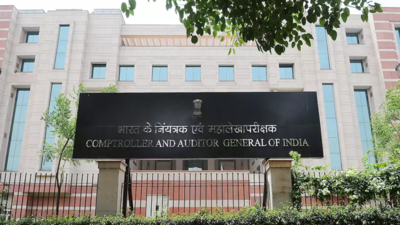- News
- City News
- dehradun News
- CAG: Rs 13.9 crore meant for Uttarakhand forests diverted to buy iPhones, fridges
Trending
CAG: Rs 13.9 crore meant for Uttarakhand forests diverted to buy iPhones, fridges
An audit by the Comptroller and Auditor General (CAG) found that Rs 13.9 crore intended for afforestation in Uttarakhand was misused for unrelated purchases like iPhones, laptops, and court expenses. The audit also highlighted delays and unsuitability in compensatory afforestation, along with a low survival rate of planted trees.
DEHRADUN: Comptroller and Auditor General (CAG) of India's audit on the compensatory afforestation fund management and planning authority (CAMPA) from July 2019 to Nov 2022 has found that Rs 13.9 crore meant for afforestation was used for unrelated activities including purchases of , laptops, fridges, coolers, and stationery.
Compensatory afforestation is mandated when forest land is allocated for non-forest purposes like industry or infrastructure projects, requiring tree plantation on an equivalent land parcel.
The report revealed that in Uttarakhand's forest divisions, funds meant for compensatory afforestation were diverted to "inadmissible activities", including the state's Harela scheme, tiger safari work, renovation of buildings, expenses on official visits, court cases, and purchases of gadgets and stationery.
The audit also flagged 52 cases where 188.6 hectares of forest land were diverted for non-forest use by user agencies (UAs). Despite lacking permission, UAs began road construction on forest land, and forest divisions failed to act or register these as offences.
The audit revealed that in five divisions, 1,204 hectares of land were unsuitable for compensatory afforestation, indicating that suitability certificates issued by divisional forest officers (DFOs) were inaccurate and granted without proper assessment. No action was taken against the concerned DFOs for this negligence. "CAMPA's CEO disbursed funds to forest divisions and implementing agencies between July 2020 and Nov 2021 without requisite approval from the head of forest force, as mandated by the principal secretary (forests) in July 2020," the CAG report added.
Stay updated with breaking news, weather updates, bank holidays and upcoming public holidays in march.
End of Article
FOLLOW US ON SOCIAL MEDIA







